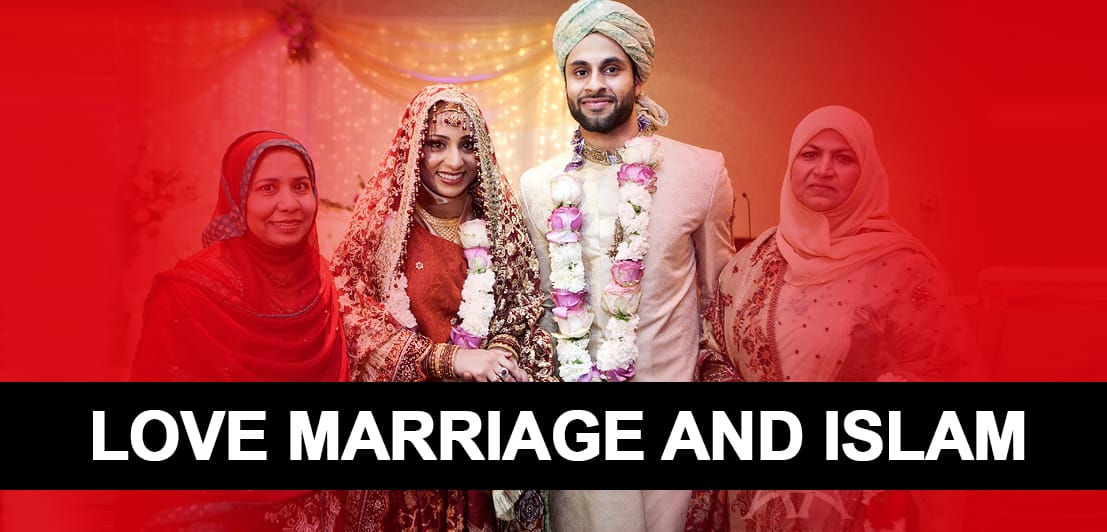
In Islam, marriage is considered a sacred and vital institution. The concept of love and marriage is recognized and encouraged within the boundaries set by Islamic teachings and principles. Islam urges Muslims to seek love, companionship, and compatibility in marriage.
While arranged marriages are common in some Muslim cultures, Islam does not prohibit love marriages. Islam emphasizes the importance of mutual consent and choice in marriage. The Prophet Muhammad (peace be upon him) stated that a woman should not be given in marriage without her permission (Sahih Bukhari).
Islamic teachings
However, it is essential to note that Islamic teachings require adherence to specific guidelines and principles in marriage. Here are some critical aspects related to love marriage in Islam:
- Consent: Both the man and the woman must willingly agree to the marriage. Forced marriages or marriages without the free consent of both parties are not permissible in Islam.
- Compatibility: Islam encourages individuals to consider compatibility and shared values when choosing a spouse. Love alone is insufficient; compatibility regarding faith, character, and goals should also be considered.
- Mahram: A Muslim woman must have a mahram (a close male relative) present during the marriage proposal and the contract process. This is to ensure her protection and that her rights are safeguarded.
- Islamic Rights and Responsibilities: In a love marriage, as in any other marriage. Partners are expected to fulfill their Islamic rights and responsibilities towards each other. This includes respecting each other, supporting one another, and fulfilling the duties of a husband and wife as prescribed in Islam.
- Legal Requirements: It is essential to fulfill the legal requirements of the country where the marriage occurs. In many countries, this involves obtaining a marriage license and registering the marriage.
It is worth noting that cultural practices and traditions may vary among Muslims worldwide. While love marriages are permissible in Islam, cultural norms and expectations can sometimes influence the acceptance and support for such marriages within specific communities. However, it is essential to prioritize Islamic principles and seek guidance from knowledgeable individuals or scholars to ensure the marriage follows Islamic teachings.
Love Marriage and Quran
The Quran, as Islam’s holy book, guides Muslims in various aspects of life, including marriage. While the Quran does not explicitly mention the term “love marriage,” it offers principles and teachings that can be applied to love marriage. Here are some relevant aspects from the Quran regarding marriage:
- Mutual Love and Mercy: The Quran emphasizes the importance of love, mercy, and compassion between spouses. Surah Ar-Rum (30:21) states: “And of His signs is that He created for you from yourselves mates that you may find tranquility in them; and He placed between you affection and mercy.”
- Mutual Support and Companionship: The Quran encourages spouses to be supportive and companions to each other. Surah Al-Baqarah (2:187) mentions marriage’s purpose as finding comfort and tranquility: “They are clothing for you and you are clothing for them.”
- Mutual Understanding and Communication: The Quran emphasizes communication and understanding between spouses. Surah An-Nisa (4:19) advises husbands to treat their wives with kindness and fairness: “And live with them in kindness. For if you dislike them – perhaps you dislike a thing and Allah makes therein much good.”
- Choice and Consent: Islam upholds the principle of free choice and mutual consent in marriage. The Quran emphasizes the importance of obtaining consent from both parties involved. Surah An-Nisa (4:19) states: “O you who have believed, it is not lawful for you to inherit women by compulsion.”
- Family and Procreation: The Quran recognizes the importance of family building and procreation within marriage. Surah An-Nisa (4:1) mentions marriage’s purpose as producing offspring: “O mankind, fear your Lord, who created you from one soul and created from it its mate and dispersed from both of them many men and women.”
Teachings of the Quran
It is important to study and understand the teachings of the Quran in their broader context and consult with knowledgeable scholars to apply these principles to the concept of love marriage in a responsible and Islamic manner.
Istikhara before love marriage
In Islam, Istikhara is a prayer seeking guidance from Allah (God) to make the right decision in unclear or important matters, including marriage. It is recommended to seek Allah’s guidance through Istikhara before making any major decision, including love marriage.
Here is how Istikhara can perform before entering into a love marriage:
- Sincerity: Begin by purifying your intentions and sincerely seeking Allah’s guidance. Approach Istikhara with a pure heart and genuine desire to make the best decision for your faith and well-being.
- Prayer: Perform a two-unit voluntary prayer, preferably during the night. You may choose to recite Surah Al-Fatihah and other verses from the Quran during the prayer.
- Supplication: Recite the Istikhara supplication (dua) with sincerity after completing the prayer. You may use the following or similar words:
- “O Allah, I seek Your guidance in making this decision. Please make it clear to me and bless me with what is best for my religion, my worldly affairs, and my Hereafter. If this love marriage is good for me in my faith and life, make it easy for me and bless it. If it is not good for me, remove it from my path and replace it with that which is better. Grant me contentment and peace in whatever You decree for me. Verily, You are the All-Knowing, the Wise.”
- Reflection and Signs: After performing Istikhara, reflect upon your feelings, observations, and any signs you may receive. It is important to remember that signs may come in various forms, such as feelings, dreams, or circumstances. Pay attention to your heart, seek advice from trusted individuals, and rely on your discernment.
- Decision-making: Based on the Istikhara prayer and your reflections, make a decision that aligns with your faith, values, and the guidance you have received. Feeling a sense of peace and contentment may indicate that proceeding with the love marriage is favorable. If doubts or uncertainties persist, reconsidering and seeking further guidance may be wise.
Remember, Istikhara is not a means to predict the future but a way to seek Allah’s guidance and make informed decisions. It is also important to seek counsel from knowledgeable individuals, such as trusted scholars or imams, who can provide guidance based on Islamic teachings and your circumstances.


